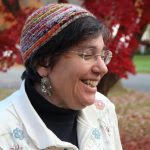There is a Jewish holiday dedicated to uncertainty. Its very name, Purim, means “dice.” During the holiday, the community reads the Book of Esther, a biblical book in which God is never mentioned. In the Book of Esther, God works only through people. In the Book of Esther, God is hard to find and no one is certain of anything. The text decrees two dates for the celebration of Purim–which is a one-day holiday. An entire tractate of Talmud details a group of rabbis arguing and trying to decide which day is the right day to celebrate Purim–without resolution.
 When one reads the Book of Esther on Purim, every time Haman, the bad guy’s name, is mentioned, people boo and make noise with groggers. Mordechai and Esther are the heroes of the story. Haman is the dark, unredeemed villain. And yet, tradition dictates that one is commanded to get to a point spiritually where one cannot tell the difference between Haman’s name and Mordechai’s. The term is ad lo yadah. “Until you don’t know.” Until you don’t know what will be good and what will be bad. Until you don’t know who is the hero and who is the villain. Until you are in a state of uncertainty.
When one reads the Book of Esther on Purim, every time Haman, the bad guy’s name, is mentioned, people boo and make noise with groggers. Mordechai and Esther are the heroes of the story. Haman is the dark, unredeemed villain. And yet, tradition dictates that one is commanded to get to a point spiritually where one cannot tell the difference between Haman’s name and Mordechai’s. The term is ad lo yadah. “Until you don’t know.” Until you don’t know what will be good and what will be bad. Until you don’t know who is the hero and who is the villain. Until you are in a state of uncertainty.
Right now, we are all separated. We have been forced into exile, even if the exile is to the place of our families, or someplace that is safe and secure for us. We have been sent away not by our own will and choice. We are experiencing, all of us, the deep yearning to return, which is the nature of exile. We cannot control anything. We cannot reach out and touch or see each in person. We cannot know what the next days and weeks will bring. We cannot know whether we will stay healthy. Ad lo yada, until you don’t know. We are in the spiritual state of unknowing.
Purim breaks down the boundaries. It is also a holiday of absurdity. One dresses in costume and there is no costume too strange or too wild to be permitted. On Purim one is allowed to mock everything, even the scriptural text. Purim exists in the place of exile and uncertainty. The response is laughter tinged with shadow. There is ancient knowledge here.
But ultimately, to be alive is to be uncertain. So, let us try to be in this moment of uncertainty without judgment. It is what it is. Let the not knowing allow us to stretch boundaries, to grow in ways we had “not known” before. Let’s reach out to each other and create a “Smith community of exile.” While this –would seem to be a contradiction in terms, ancient wisdom teaches that it isn’t. Light exists in shadow. With this knowledge, we can look for this light; we can avail ourselves of the opportunity to be spiritually enlivened, and even laugh through the tears which may sometimes fill our eyes.
Rhonda Shapiro-Rieser serves as the Jewish Student Adviser at Smith.
